

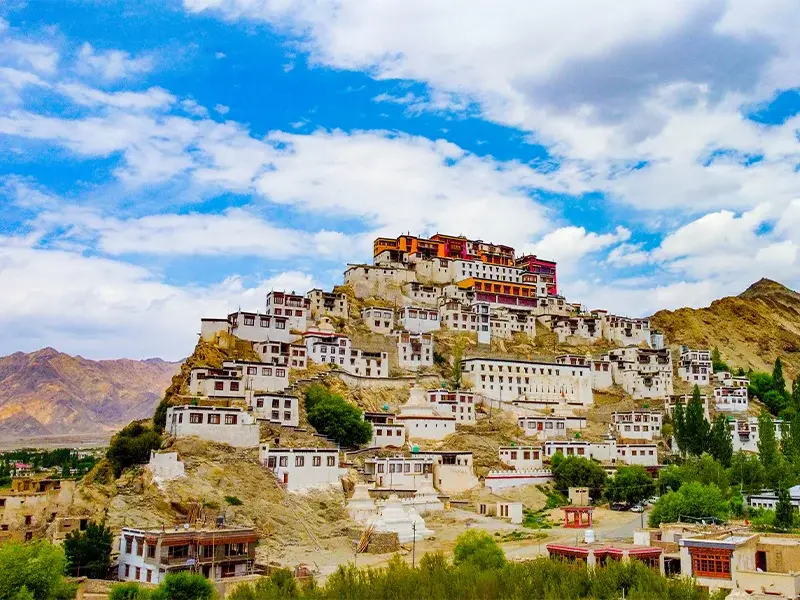
Thiksey Monastery Ladakh is one of the most magnificent and historically rich Buddhist sites in India. Perched on a hill in the Indus Valley, this 12-story complex was founded in the mid-15th century by Paldan Sherab, a disciple of Tsongkhapa, the founder of the Gelugpa (Yellow Hat) sect. The site was initially meant to be a small prayer house, but due to a miraculous dream involving the flying of sacred relics to the hilltop, the structure was expanded into a grand monastery.
Modeled architecturally after the Potala Palace in Lhasa, Thiksey Monastery now houses over 60 monks and is home to priceless artifacts, st ...

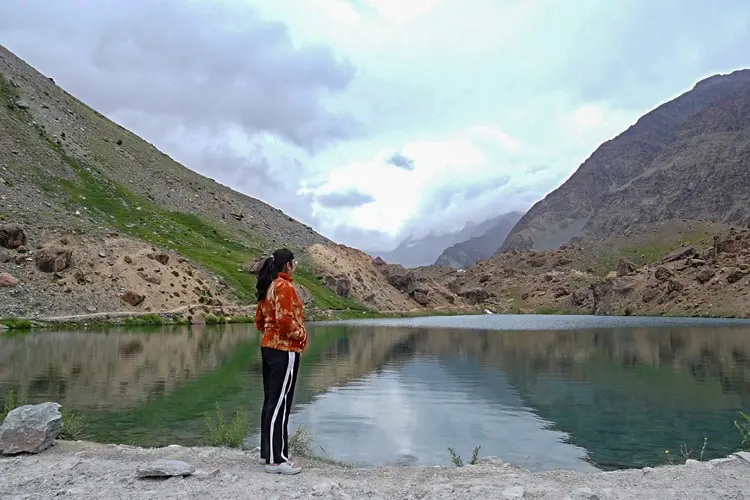
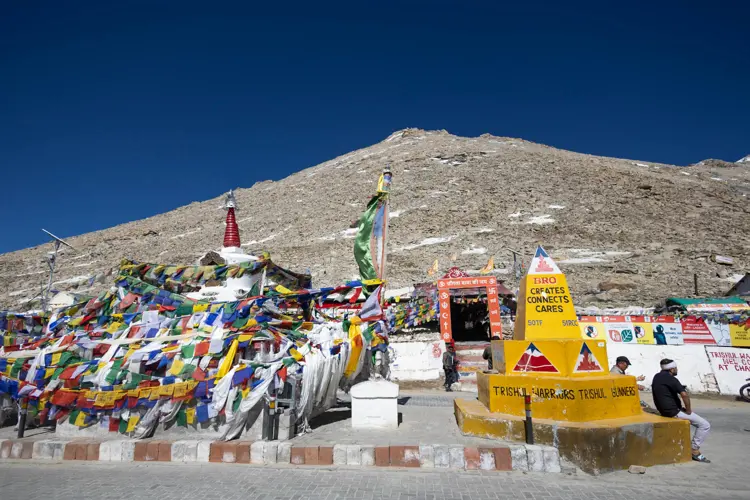
 1.jpg)
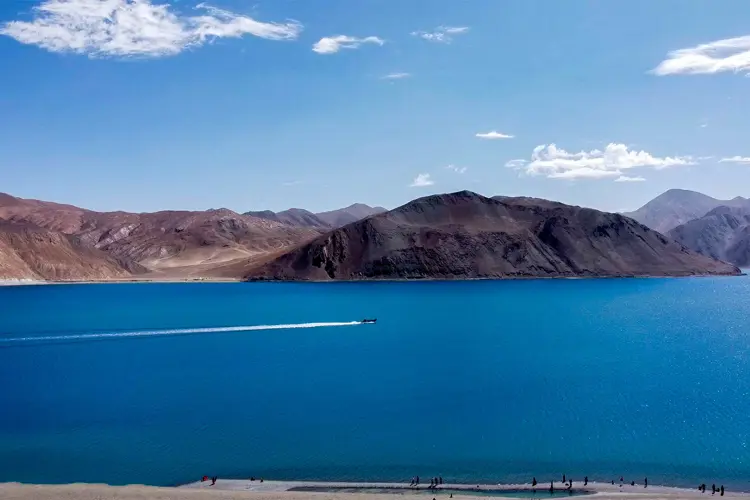
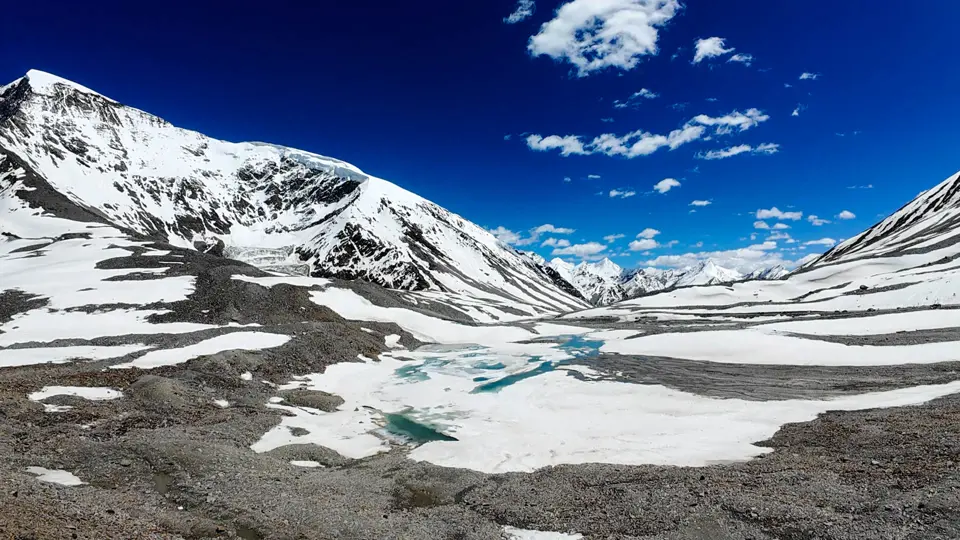
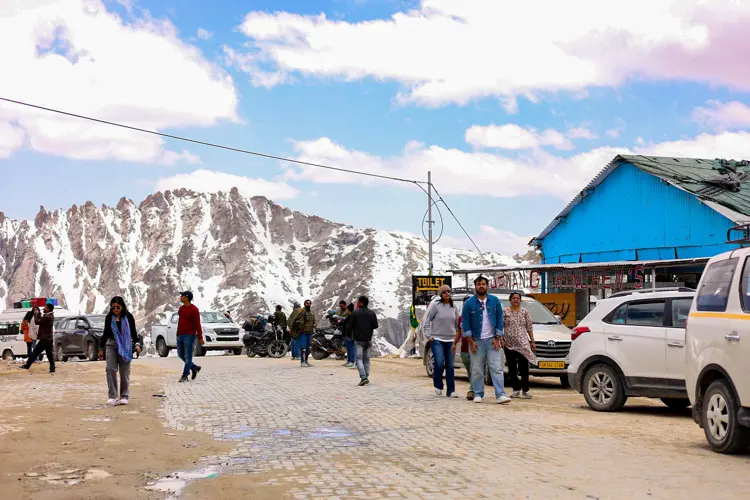
 4.jpg)

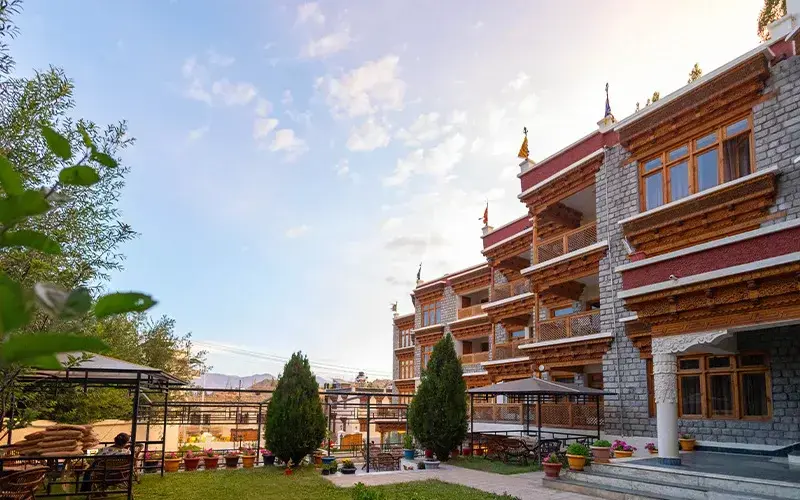
Hotels In Leh Ladakh
Experience peaceful stays amid mountains, lakes, and clear skies.
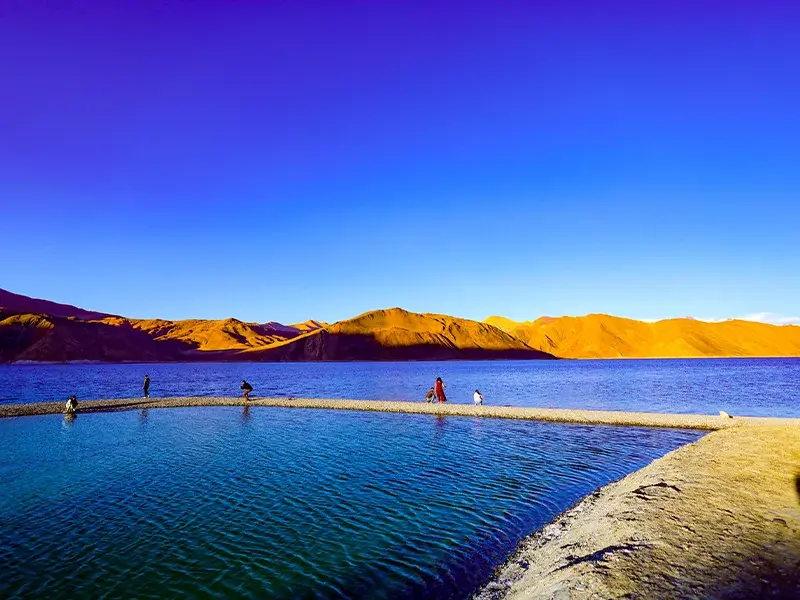
Packages Of Leh Ladakh
Experience Ladakh’s mountains, lakes and culture with our curated packages.
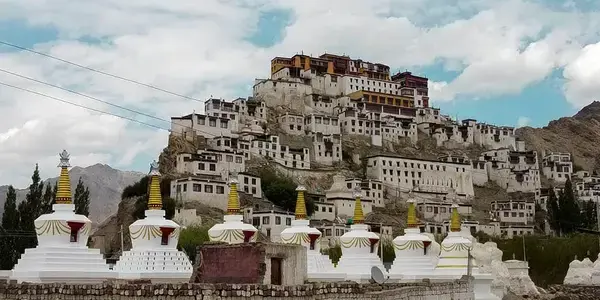
Places To Visit In Leh Ladakh
Best Places to Visit in Leh Ladakh for an Unforgettable Trip
.webp)
Blogs Leh Ladakh
High-altitude adventures and serene Tibetan-style landscapes
.webp)
Images Of Leh Ladakh
Explore Ladakh’s raw beauty through real and scenic images.
Hotels In Leh Ladakh
Packages Of Leh Ladakh
Places To Visit In Leh Ladakh
Blogs Leh Ladakh
Images Of Leh Ladakh
☀️ Visit early (6 AM–8 AM) for prayers and fewer crowds
📸 Photography allowed in most areas, except during rituals
💬 Interact with monks — many speak English and welcome respectful questions
🪪 No permit needed if you're staying in Leh
🛕 Women can visit the monastery and attend teachings
🧣 Dress modestly – shoulders and knees covered
🧴 Carry sunscreen and water – there's a bit of walking
🧘 Quiet rooms available for meditation
🏞️ Combine with a visit to Shey Palace and Hemis Monastery
🕯️ The candle-lit prayer rooms offer peace and reflection
🥟 Momos – hot and spicy, sold in local stalls
🍜 Thukpa – noodle soup with mountain vegetables
☕ Butter Tea (Gur Gur Chai) – served in monasteries and cafés
🍞 Tingmo Bread with spicy dal or veg curry
🍚 Chhurpe (dried yak cheese) – chewy and salty
🧂 Skieu – a traditional Ladakhi pasta-style dish
🧊 Try chhang (local barley beer) if visiting nearby homes during festivals
🛕 Visit the Maitreya Buddha Hall
🕰️ Attend the morning chanting ceremony
🧘 Sit for silent meditation in one of the smaller prayer halls
🎭 Witness the Thiksey Gustor Festival (if visiting in November)
🧭 Walk the monastery complex and spin prayer wheels
📷 Capture stunning shots of the valley from the rooftop
🛍️ Buy handcrafted items and thangka art from the monastery shop
🥾 Short hike around the base for panoramic photography
🙋 Talk to resident monks for spiritual guidance
🏰 Shey Palace & Monastery (5 km away)
🌉 Indus River Viewpoint – great for landscape shots
🧘♂️ Hemis Monastery – the largest monastery in Ladakh
🌄 Stakna Monastery – quiet and picturesque
🛍️ Leh Market – for Tibetan souvenirs and local food
🛫 Leh Airport – only ~20 km away for easy access
May to October – accessible roads and active monastic rituals
Thiksey Monastery Ladakh is one of the most magnificent and historically rich Buddhist sites in India. Perched on a hill in the Indus Valley, this 12-story complex was founded in the mid-15th century by Paldan Sherab, a disciple of Tsongkhapa, the founder of the Gelugpa (Yellow Hat) sect. The site was initially meant to be a small prayer house, but due to a miraculous dream involving the flying of sacred relics to the hilltop, the structure was expanded into a grand monastery.
Modeled architecturally after the Potala Palace in Lhasa, Thiksey Monastery now houses over 60 monks and is home to priceless artifacts, stupas, scriptures, thangkas (Tibetan paintings), and statues. The highlight is the 15-meter-high Maitreya Buddha statue, built in honor of the 14th Dalai Lama’s visit in 1970. It’s the largest of its kind in Ladakh and draws thousands of pilgrims annually.
The monastery plays a crucial role in preserving Ladakh’s spiritual heritage. Daily rituals, morning prayers, and annual festivals like Gustor offer deep insight into the monastic way of life. Thiksey’s legacy continues as a living center of faith, meditation, and high-altitude Buddhist scholarship.
📏 12-story structure housing 10+ shrines
🪷 Belongs to the Gelugpa (Yellow Hat) sect
🧘 15-meter-high seated Maitreya Buddha is the tallest in Ladakh
📜 Contains rare Buddhist texts, murals, and thangkas
🏯 Modeled after Potala Palace, Lhasa
🧑🎓 Home to over 60 monks and a nunnery
🎭 Hosts annual Thiksey Gustor Festival with masked dances
🌅 Offers panoramic sunrise views of Indus Valley
🙏 You can attend early morning prayers at 6 AM
🎐 Prayer wheels and yak butter lamps line the halls
🕯️ The Dream That Chose the Hill
It is believed that the location for Thiksey Monastery was divinely chosen. One of the founding monks had a vision where his sacred tools (torma and scriptures) flew away and landed on a hill. When he followed the vision the next morning, he found the items exactly where he had seen them in the dream. Taking it as a sign from the divine, the monastery was built right there. Locals still consider this an act of divine placement.
🎧 The Whispering Walls
A traveler once visited Thiksey Monastery during a quiet afternoon. Sitting inside the ancient prayer room alone, he described hearing a faint chant, although no monks were present. Whether it was echo, wind, or memory of centuries-old prayers still resonating, he felt peaceful tears roll down his cheeks. He later called it “a moment where even walls seemed to whisper wisdom.”
The Himalayan Mountains are a majestic mountain range in South Asia, spanning five countries. They boast the world's highest peaks, including Mount Everest. These young, growing mountains feature rugged, snow-capped peaks, deep valleys, and glaciers. The Himalayas influence regional climate, harbor unique biodiversity, and hold cultural and spiritual significance. They attract adventurers, nature lovers, and spiritual seekers from around the world.